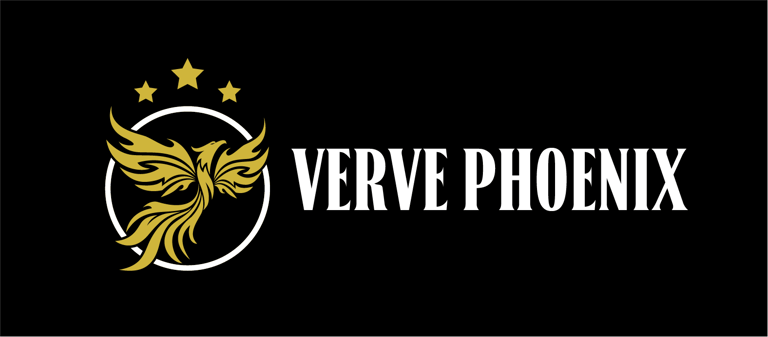The Future of IT Managed Services: A 2025 Outlook
The Future of IT Managed Services: Navigating the Tech Landscape of 2025
IT MANAGED SERVICESFUTURE TRENDS IN TECHNOLOGYENTERPRISE IT SOLUTIONSBUSINESS IT STRATEGIESCLOUD COMPUTING
Rajnish Bhogal, Founder & CEO | Verve Phoenix
12/10/20243 min read


Introduction
As we approach 2025, the landscape of IT managed services is undergoing a significant transformation. The rapid advancement of technology, changing business needs, and evolving customer expectations are reshaping how IT services are delivered and consumed. This blog post explores the future of IT managed services, examining the trends, challenges, and opportunities that lie ahead.
The Evolving Role of IT Managed Services
IT managed services have come a long way from their origins as simple break-fix support. Today, they play a crucial role in helping businesses navigate the complex world of technology. As we look towards 2025, the role of IT managed service providers (MSPs) is set to become even more strategic and integral to business success.
MSPs are increasingly becoming trusted advisors, helping organizations not just maintain their IT infrastructure, but also drive digital transformation and innovation. This shift is driven by the need for businesses to stay competitive in an increasingly digital world.
Key Trends Shaping the Future
Cloud-Native Solutions
The future of IT managed services is closely tied to the cloud. By 2025, we expect to see a significant increase in cloud-native solutions and services. MSPs will need to adapt their offerings to support multi-cloud and hybrid cloud environments, providing seamless integration and management across different platforms.
According to a recent study by Gartner, public cloud services are projected to grow 23.1% in 2021, and this trend is expected to continue in the coming years.
Artificial Intelligence and Machine Learning
AI and ML are set to revolutionize IT managed services. These technologies will enable predictive maintenance, automated troubleshooting, and more efficient resource allocation. MSPs that can effectively leverage AI and ML will be able to provide more proactive and value-added services to their clients.
Edge Computing
With the proliferation of Internet of Things (IoT) devices and the need for real-time data processing, edge computing is becoming increasingly important. MSPs will need to develop expertise in managing and securing edge infrastructure, as well as integrating edge solutions with cloud and on-premises systems.
Cybersecurity and Data Privacy
As cyber threats continue to evolve and data privacy regulations become more stringent, cybersecurity will remain a top priority for IT managed services. MSPs will need to offer comprehensive security solutions that go beyond traditional perimeter defenses, incorporating advanced threat detection, incident response, and compliance management.
The Impact on Businesses
The future of IT managed services will have a profound impact on how businesses operate. Some key benefits include:
Increased agility and scalability
Enhanced focus on core business functions
Access to cutting-edge technologies without significant upfront investment
Improved security and compliance posture
Better alignment of IT with business objectives
However, businesses will also need to adapt to this new reality. This may involve:
Developing new skills and competencies
Rethinking IT governance and procurement processes
Fostering a culture of innovation and continuous learning
Challenges and Opportunities
While the future of IT managed services looks promising, it's not without its challenges. MSPs will need to:
Keep pace with rapidly evolving technologies
Address the growing skills gap in areas like cloud computing, AI, and cybersecurity
Navigate complex regulatory environments
Manage the expectations of increasingly sophisticated clients
However, these challenges also present opportunities for MSPs to differentiate themselves and add value. Those that can successfully address these challenges will be well-positioned to thrive in the future IT managed services landscape.
Preparing for the Future
To prepare for the future of IT managed services, both MSPs and their clients should consider the following steps:
Invest in continuous learning and skill development: Stay up-to-date with the latest technologies and industry trends.
Foster partnerships: Build strong relationships with technology vendors and other service providers to offer comprehensive solutions.
Embrace automation: Leverage automation tools to improve efficiency and free up resources for more strategic initiatives.
Focus on outcomes: Shift from a technology-centric approach to an outcome-focused model that aligns with business objectives.
Prioritize security and compliance: Develop robust security practices and stay informed about regulatory requirements.
Cultivate a culture of innovation: Encourage experimentation and creative problem-solving within your organization.
Conclusion
The future of IT managed services is bright, with exciting opportunities for both service providers and their clients. As we look towards 2025, the key to success will be adaptability, continuous learning, and a focus on delivering value through technology. By staying ahead of trends, addressing challenges head-on, and embracing innovation, businesses can leverage IT managed services to drive growth and competitive advantage in the digital age.
Want to learn more about how your business can prepare for the future of IT managed services?
Ready to Elevate Your Business?
Get expert guidance for your business success today!
For Services
Email us at
Call us at
+91 8384062376
© 2024. All rights reserved.
